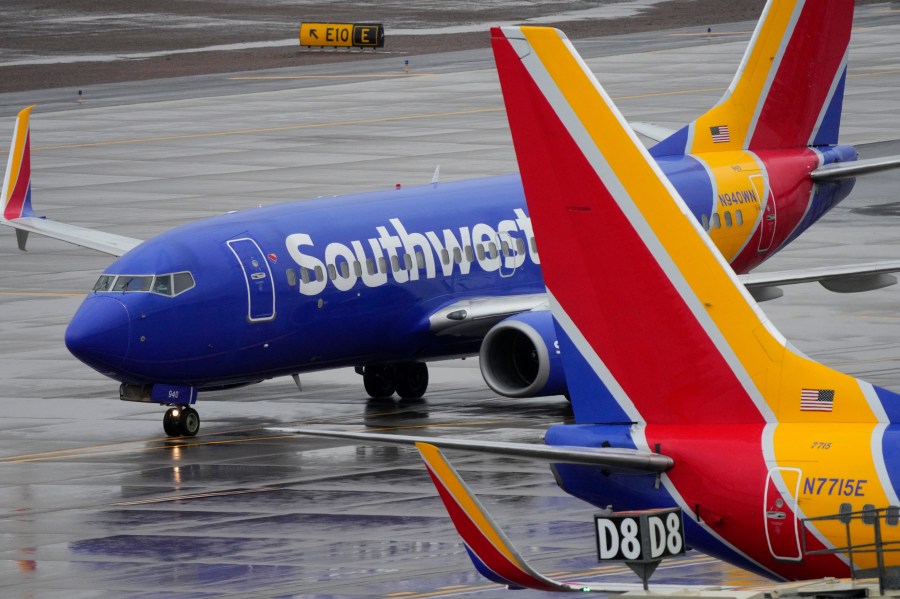
DALLAS — Southwest Airlines plans to drop its tradition of more than 50 years and start assigning seats and selling premium seating for customers who want more legroom.
The airline said Thursday that it has been studying seating options and is making the changes because passenger preferences have shifted. The moves could also generate revenue and boost financial performance.
Southwest made the announcement on the same day that both it and American Airlines reported a steep drop in second-quarter profit despite higher revenue.
Airlines are struggling with higher costs and reduced pricing power, especially on flights within the United States, as the industry adds flights faster than the growth in travel demand.
Southwest, based in Dallas, said its second-quarter profit fell 46% from a year earlier, to $367 million, as higher costs for labor, fuel and other expenses outstripped an increase in revenue. The results met Wall Street expectations.
American Airlines also reported a 46% drop in profit, to $717 million, and said it would break even in the third quarter – well below Wall Street expectations for the July-through-September period.
American “did not perform to our initial expectations” because of a since-abandoned sales strategy and an oversupply of domestic flights, CEO Robert Isom said. He said the airline was responding with a strategy that boosts profits and “makes it easy for customers to do business with American.”
Southwest has used an open-seating model since its founding, with passengers lining up to board, then choosing their own seat once they are on the airplane. But, the airline said, preferences have “evolved” – as more travelers take longer flights, they want an assigned seat.
The airline also said it will offer redeye flights for the first time.
Southwest said that its first overnight, redeye flights will land on Feb. 14, 2025 in nonstop markets that include Las Vegas to Baltimore and Orlando; Los Angeles to Baltimore and Nashville; and Phoenix to Baltimore. It plans to phase in additional redeye flights over time.
SEE ALSO: USDOT launches investigation into Delta as airline continues to cancel flights in wake of IT outage
The change in seating policy comes as Southwest is under pressure from Elliott Investment Management. The hedge fund argues that the airline lags rivals in financial performance and has failed to change with the times. It wants to replace CEO Robert Jordan and Chairman Gary Kelly.
Shares of all major airlines dipped before the opening bell Thursday. Southwest Airlines Co. fell 6% and American Airlines Group Inc. fell 7%. Delta, JetBlue and United slipped more than 1%.
Customers Thursday appeared to have mixed reaction to the news.
“They should have done this a long time ago,” Tawan Bosley said. “I can check in comfortable, and know I have a seat.”
While many Southwest loyalists are applauding the move, others are giving the announcement a thumbs down.
“Sometimes my friend will get called first, and she can save my seat. So, I like it when it’s first come, first served,” Esi Quartey said.
“I’m not too happy about it either. It’s one of the things that makes Southwest unique,” Kaycie Wilson said.
In a statement, Southwest said, “The research is clear and indicates that 80% of Southwest Customers, and 86% of potential Customers, prefer an assigned seat. When a Customer elects to stop flying with Southwest and chooses a competitor, open seating is cited as the number one reason for the change. By moving to an assigned seating model, Southwest expects to broaden its appeal and attract more flying from its current and future Customers.”
Patrcia Kuhl of Naperville is concerned the decision will affect cost.
“Prices are going up everywhere, and I know Southwest is trying to be competitive. But, if it means more price increase, it’s an issue for sure,” she said.
Southwest said it plans to begin bookings on assigned seating in 2025.










